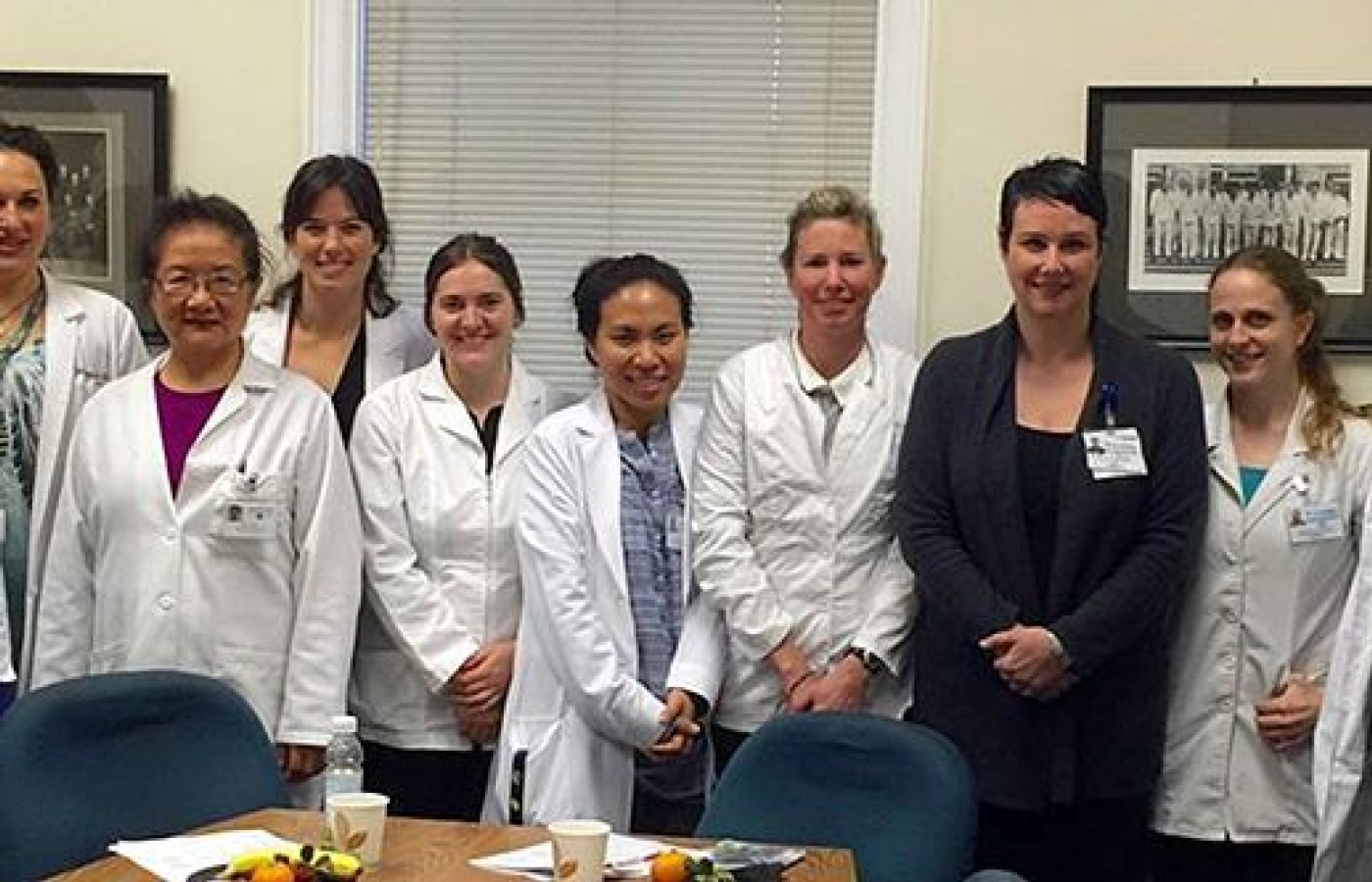Think of your most difficult patient – the one you try to motivate and work so hard with to develop a realistic treatment plan with achievable and measurable goals. Week after week, you see this patient struggle, sinking deeper into hopelessness as their health and quality of life continue to worsen. What if there was something else you could do that could change their outlook and their life? The solution is as simple as an automated program.
| Digital ExclusiveA Picture of Practical Integration
Alex Feng, OMD, PhD, LAc, reached out to me after reading the Acupuncture Today article I edited about Integrative Medicine in a Hong Kong hospital ("A Model of Integrative Medicine," January 2016). He wished to share some information with the AOM community about his integrative clinical rotation at Highland Hospital in Oakland, California.
Bill Reddy: Dr. Feng – Can you tell me a little about yourself and Dr. Amy Matecki and how the Integrative Center began and evolved to how it's structured today?
Dr. Feng: The International Center for Integrative Medicine (ICIM), a nonprofit health care organization, was founded by Dr. Amy (Ying Li) Matecki, MD, LAc. and Craig Brandt in 2010, and later Colin Feeney, MD, FACP the Chief of Critical Care Medicine and Director of MICU at Highland joined with the mission to bring the best of both Eastern and Western medicine to patients through clinical services, education and research.
The vision of ICIM is to apply the Integrative Medicine model developed in China (in place since 1950) to a modern, community-based urban medical Center. By preserving the treasure of Traditional Chinese Medicine and blending it with allopathic medicine, ICIM offers a unique type of Integrative health care.
In this model, neither type of medicine is "primary" with the other viewed as complementary. Both are considered valuable as dictated by a patient-centered, interdisciplinary team of practitioners who jointly participate in the assessment, diagnosis, treatment and rehabilitation of patients. In this view, the full range of TCM (acupuncture, acupressure, tui na, qi gong, herbal and nutritional therapies), as well as other modalities such as music and sound therapy, yoga, meditation, etc., can be employed in concert with conventional medicine to meet the patients' needs.
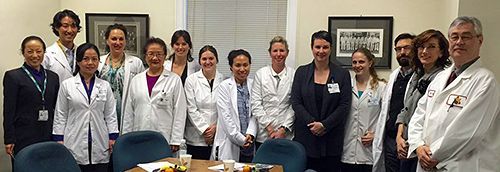
Dr. Matecki, MD, LAc. was educated in China and then repeated her internal medicine residency at Alameda County Medical Center (currently Alameda Health System) in affiliation with UCSF and pursued her TCM education at the Academy of Chinese Culture and Health Sciences (ACCHS) in the Oakland, California, shortly after she moved to the U.S. In 2004, she pioneered the acupuncture program at the Alta Bates Summit Comprehensive Cancer Center. I joined her there in 2009 to teach qi gong to people living with cancer and in 2014, joined the medical staff and became the first acupuncturist to provide clinical care in their 100-year history.
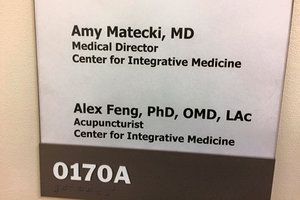
I've been in private practice since acupuncture was legalized in California in 1976 and was on staff at the Chinese Hospital-San Francisco for 17 years before working with Dr. Matecki. Dr. Matecki and Colin Feeney, MD, FACP, Chief of Critical Care, Director MICU collaborated with Highland Hospital to change the bylaws to allow for the credentialing of TCM practitioners. I've also mentored many TCM practitioners in the role as former faculty at ACCHS.
In 2014, Dr. Matecki and Dr. Feeney worked to create a Division of Integrative Medicine at Highland Hospital, a public teaching hospital in Oakland where 18 TCM practitioners currently have hospital privileges. This cadre of pioneers initially volunteered through ICIM to provide in-patient and out-patient care prior to the creation of the Division. Dr. Matecki is now Division Chief of Integrative Medicine and I serve as her Medical Director of Integrative Medicine at Highland Hospital.
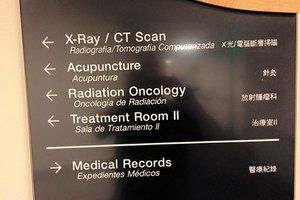
In 2016, ICIM launched the pilot TCM internship program with the hospital's support. ICIM provides clinical rotations in Integrative Medicine to master's and doctoral TCM students, as well as to allopathic medical students, interns and residents.
The early work of ICIM in this acute care setting was critical to its subsequent success: forging relationships with the allopathic practitioners and administrators in the acute care setting, developing the ability to articulate what TCM and Integrative Medicine are, building the protocols and resources for delivering clinical services, research and education. Building on this strong foundation, ICIM has developed a robust clinical practice in an acute care facility (with a three month waiting list), has completed a research study on the feasibility of performing acupuncture in the ICU setting with new research proposals, and offers the first clinical rotation for TCM practitioners in the U.S.
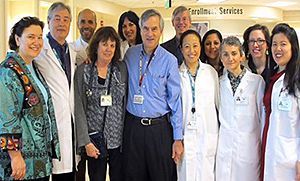
BR: How do you approach reinforcing the various skillsets of didactic education, clinical application and research?
Dr. Feng: We have a mentorship program for our practitioners, implemented by me and Dr. Matecki with support from the allopathic faculty at the hospital. We also have weekly faculty meetings to deepen our TCM practice and expand our allopathic learning as well as our teaching roles. These are formal classes as well as offering case-based scenarios for discussion. Research skills are reinforced by an interdisciplinary research committee composed of TCM practitioners, physicians, researchers and grant writers. The clinical rotation is embedded in the clinical rotations of internal medicine specialties such as hematology/oncology, neurology, pulmonology and integrative medicine.
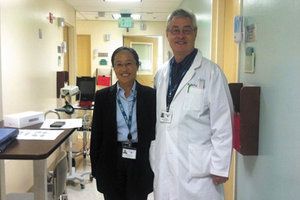
TCM students share the same didactic patient-centered teaching as the allopathic students and participate in differential diagnosis and treatment planning and evaluation. In addition, the ICIM faculty reviews the observations and learning objectives from these rotations in smaller groups with the TCM students and ensures the bridge is articulated for Integrative Medicine. The didactic program is complemented by hospital grand rounds, morning report and morbidity and mortality conferences.
BR: How does your program differ from the Integrative Centers at Sloan Kettering, Johns Hopkins and Mass General Hospitals?
Dr. Feng: I believe our program of being embedded in the allopathic clinical rotation learning, hospital privileges, consult service for inpatient as well as a Division of Integrative Medicine with inpatient consults and outpatient clinic are key aspects of what set us apart from other integrative medical centers.
BR: Do you have volunteers in the fields of naturopathic medicine, homeopathy, massage therapy, midwifery, chiropractic, reiki/energy work, vision therapy or holistic nursing?
Dr. Feng: Not at this time. It is our plan to expand our treatment options in the future, opening our door to other allied health professionals.
BR: Can you share your ICU feasibility study with our readers?
Dr. Feng: Yes – the abstract was presented at the Society for Acupuncture Research in Boston in November, 2015. It can be found at website [url=http://www.icimhealth.org]http://www.icimhealth.org[/url]. We developed a protocol for sample selection with inclusion and exclusion criteria for ICU patients who may benefit from acupuncture. For those that met the criteria, we provided three consecutive daily sessions of acupuncture and assessed outcomes of patient acceptance, impact on anxiety, nausea, vomiting and pain. This was a multidisciplinary study with medical students, nursing staff, ICU attending physicians, and residents involved with ICIM faculty in designing and executing the study. We're still in the process of data analysis.
BR: Your clinic sounds like a perfect integrative model for other U.S. hospitals (both public and private) to emulate. What's your vision on sharing this model?
Dr. Feng: Yes, we believe this is a sustainable and effective model. We plan to provide workshops and publications to share how this was accomplished, what we learned and to offer consultation to other facilities so we can promote this version of Integrative Medicine. By replicating this model, we will be better able to meet the demand for this exciting type of medicine. We also plan to continue research on clinical safety and efficacy of acupuncture and herbs. We are currently conducting research on nutrition and breast cancer and planning additional studies on the safety of herbs in supportive cancer care.
BR: You offer a very unique learning opportunity – how can students and practitioners get involved?
Dr. Feng: Our window for faculty/practitioner applications is temporarily closed. Following our pilot program with Five Branches University, we will be accepting applications for students at the master, doctoral and post graduate levels who want to consider studying with us. They can learn how to apply by accessing our website.
BR: Do you have a not-for-profit status? Does ICIM accept philanthropic support?
Dr. Feng: Yes we are a 501(C3) and we accept donations and have an active fundraising effort in place.
BR: Is there anything else you would like to share with us?
Dr. Feng: Other countries are interested in learning what ICIM is doing and we plan on sharing this model and potentially engaging in exchange programs and collaboration with them as well. Integrative medicine is future of health care on the planet, and we're doing what we can to spread the word here in the US.
